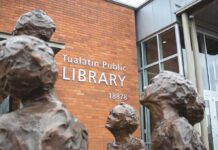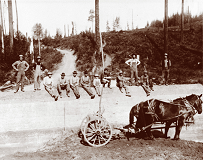No doubt you have seen the advertisements for DNA testing to learn about your ancestry. One service promises you can find out how much Neanderthal DNA you possess and offers the ability to track your Y chromosome and mitochondrial DNA into deep history. Ancestry DNA promises that you can learn your heritage, and find your living relatives otherwise unknown to you. 23 & Me started out their business looking at the health secrets found through DNA testing, but was greatly curtailed by the FDA in what they could report. Conventional medicine thinking is that until we have an approved treatment for what is in your DNA, what good can come from you knowing?
What we all learn heritage-wise is that genetic relatives are detectable until about 5 generations back, after that only your ethnic groups are detectable. Go way back, and we learn everyone from Eurasia seems to have come out of East Africa based on the genetic trail that has been discovered from archeological remains and people living today. If your ancestry of the past 5000 years includes people from the Eurasian continent, you also carry Neanderthal DNA, a near certainty.
As interesting as ancestry information is to learn, the greatest value from having a DNA test done is to learn insights to your own health. This is where the gold mine of
DNA information lies. The way to access what is currently knowable about DNA and health is found by downloading your raw genetic data from the service doing the ancestry testing. You then run it through a 3rd party service that anonymously compares your SNPs (Single Nucleotide Polymorphisms) that is, gene variants, past a database that contains current genetic associations. You download those results as a private, searchable website on your own computer. Then you and your medical providers are able to access your genetic secrets as questions come up.
Many of us are carriers of genetic diseases that show up with much less frequency than do people carrying the gene. Most are recessive, meaning you need two of the carrier genes to have the disease. The gene for Cystic Fibrosis is most common in Northern Europeans, and the gene for Sickle Cell Anemia in people from sub-Saharan Africa. If you are a carrier, it is worth knowing whether you have passed this onto your children, and be aware that the disease could show up in your descendants.
More common SNPs that affect you personally, and that you can do something about are familial hemochromatosis, variants in vitamin D receptors that suggest you need even more, and variants in how well your body processes thyroid hormone, for examples. Knowledge is power to defuse ticking genetic time bombs, and resolve perplexing health symptoms that previously had no obvious cause.
Aging is the other place where knowing what you can about your own DNA can alert you to possibly higher risks of dementia, macular degeneration, and diabetes, to name just three. Why know? So you can deliberately choose lifestyle mitigation strategies that can counter that genetic risk. Most of these topics hiding in your DNA are about increased risks. Most are not curses of certain doom.
Knowing your DNA SNPs can also guide insight to how well you are going to process and tolerate various medications and classes of medications.
This is a new area of insight that is only going to grow as science and medical reporting gain greater insights to what your genes can mean for your health and well being. This information can provide a meaningful guide to the choices you can make now. Knowledge empowers you with the ability to make choices.
The doctors at True Health Medicine have been utilizing genetic testing in diagnosing and devising treatment plans since our day one. I’m excited to expand upon those practices in the New Year by helping people uncover genetic risks and forming healthful mitigation plans wherever possible.
The doctors and staff at True Health Medicine wish everyone a safe, prosperous, healthy and happy New Year!




















